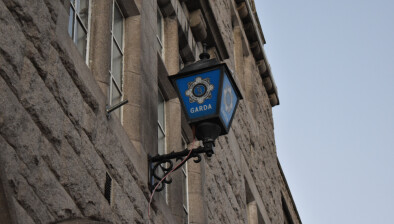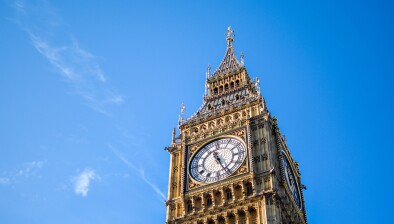Court of Appeal: Journalist overturns Garda warrant for seizure of his phone for information in criminal investigation

The Court of Appeal has ruled in favour of a journalist who had his mobile phone seized by gardaí with a view to obtaining information relating to a serious criminal incident. The journalist had refused to give the phone to gardaí on the basis of journalistic privilege.

About this case:
- Citation:[2022] IECA 98
- Judgment:
- Court:Court of Appeal
- Judge:Ms Justice Caroline Costello
The court determined that the warrant which the gardaí had obtained from the District Court to seize the phone was defective because the judge was not informed about the potential interference with journalistic privilege. Any such warrant could only be granted if the District Court was satisfied that there was an overriding requirement of public interest, the court said.
Background
The applicants were Mr Emmett Corcoran (a journalist) and The Democrat (his newspaper). On an early morning in December 2018, a violent incident occurred at Strokestown, County Roscommon in which several unidentified people attacked security personnel who had taken possession of a property pursuant to a court order. Mr Corcoran attended the aftermath and published videos and photos of the scene.
Subsequently, Mr Corcoran was interviewed by gardaí. He made copies of the media available to gardaí but refused to provide the name of the person who told him about the incident. Mr Corcoran cited journalistic privilege as his reason for the refusal.
Later, the gardaí applied ex parte in the chambers of a District Court judge in Roscommon for two search warrants. The warrants were in respect of Mr Corcoran’s home and The Democrat’s offices. The application was made pursuant to s. 10 of the Criminal Procedure (Miscellaneous Provisions) Act 1997.
The sworn information provided to the District Court judge in the application did not refer to Mr Corcoran being a journalist or that he had asserted journalistic privilege over his sources. There was also no evidence that the District Court judge was informed about the interference with the applicant’s rights under the Constitution or the European Convention on Human Rights.
The search warrant was granted and the applicant’s phone was seized. Before the phone could be accessed, the applicants issued judicial review proceedings seeking to quash the warrants an prevent the gardaí from accessing the data.
The High Court accepted that the right to expression included the implied right of a journalist to protect their sources, but held that this was not an absolute right. A balancing exercise must be carried out by a court of law and the mere assertion of privilege was insufficient. However, the court held that the District Court did not have any jurisdiction in a warrant application to carry out the balancing exercise or to determine any issue of journalistic privilege.
In applying a balancing exercise in the case, the trial judge was satisfied that the public interest in ensuring that all relevant evidence was available in the pending criminal proceedings overrode the claim for journalistic privilege. As such, the court dismissed the proceedings. The court later delivered a supplemental judgment which dealt with the scope of the data which could be accessed by gardaí. The gardaí were prohibited from examining the contact records in the phone.
Both parties appealed the decision to the Court of Appeal.
Court of Appeal
Delivering judgment in the case, Ms Justice Caroline Costello began by considering the case law relating to journalistic privilege. It was noted that the protection derived from the “high value which the law places on the dissemination of information and public debate”, and that journalists were essential to that process. As such, journalists were generally entitled to protect their sources (Cornec v. Morrice [2012] IEHC 376).
The court also referred to Mahon v. Keena [2007] IEHC 348, which inter alia considered the application of the ECHR to journalistic privilege. There, the Supreme Court endorsed comments in Goodwin v. United Kingdom (1996) 22 EHRR 123 that the protection of journalistic sources was one of the basic conditions of press freedom. In Mahon, the court did not differentiate between journalistic privilege under the Constitution and the ECHR.
The court held that it was required under the European Convention on Human Rights Act 2003 to interpret section 10 of the 1997 Act in a manner that was compatible with Article 10 of the EHCR. The court referred to several ECtHR cases which emphasised the importance of protecting journalistic sources (see Nordisk Film & TV AS v. Denmark (App. No. 40485/02), Sanoma Uitgevers B.V. v. The Netherlands (App. No. 38224/03) and Stichting Ostade Blade v. Netherlands (App. No. 8406/06)).
The court also considered Fine Point Films and Trevor Birney [2020] NICA 35, in which the Court of Appeal in Northern Ireland was highly critical of the procedure used to obtain a warrant for journalistic material. The Court of Appeal stated that there was a heavy onus on an applicant for a warrant to provide all details to the court, even if some of those details were unfavourable to the applicant.
The court summarised all of the case law into 28 principles and applied them to the facts of the case. It was noted that an application for a warrant was an administrative rather than judicial action (The People (DPP) v. Tallant [2003] 4 I.R. 343). The decision for a District Court judge under the 1997 Act was binary, as the warrant could either be granted or refused, the court said.
However, in some cases a District Court judge was required to act judicially when considering whether to exercise their discretion to grant a warrant, the court said. As such, in appropriate cases a judge had to take account of constitutionally protected rights being interfered with by a warrant.
While an ex parte warrant application should never be a full trial, it was necessary for the gardaí to give full disclosure to the court when making the application, the court held. The gardaí must identify a legally sufficient basis for seizing material. The gardaí were also required to expressly avert to the fact that journalistic material may be seized, the court said.
The court emphasised that the balancing exercise between privilege and public interest must take place before issuing the warrant (Mahon and Sanoma). As such, the trial judge was incorrect to hold that the District Court had no jurisdiction to consider the issue of journalistic privilege.
The gardaí failed to bring the relevant law and facts to the attention of the District Court when making the application, the court said. As such, the Commissioner did not show that the District Court judge was given the information necessary to decide whether in the circumstances of the case it was appropriate to issue a warrant.
Conclusion
The court held that the warrant was granted in breach of the applicant’s constitutional rights. There was a clash of interests at the ex parte hearing which had to be resolved by the judge, the court said. As such, the gardaí had to inform the judge of all relevant matters.
The trial judge’s assessment of the balancing test was ex post facto and he failed to assess the validity of the warrant. Finally, it was stated that the Oireachtas should give “urgent attention” to the issue of journalistic privilege and warrants. The applicant’s appeal was allowed and the phone was ordered to be returned.
Corcoran and Anor. v. The Commissioner of An Garda Síochána and Anor. [2022] IECA 98










